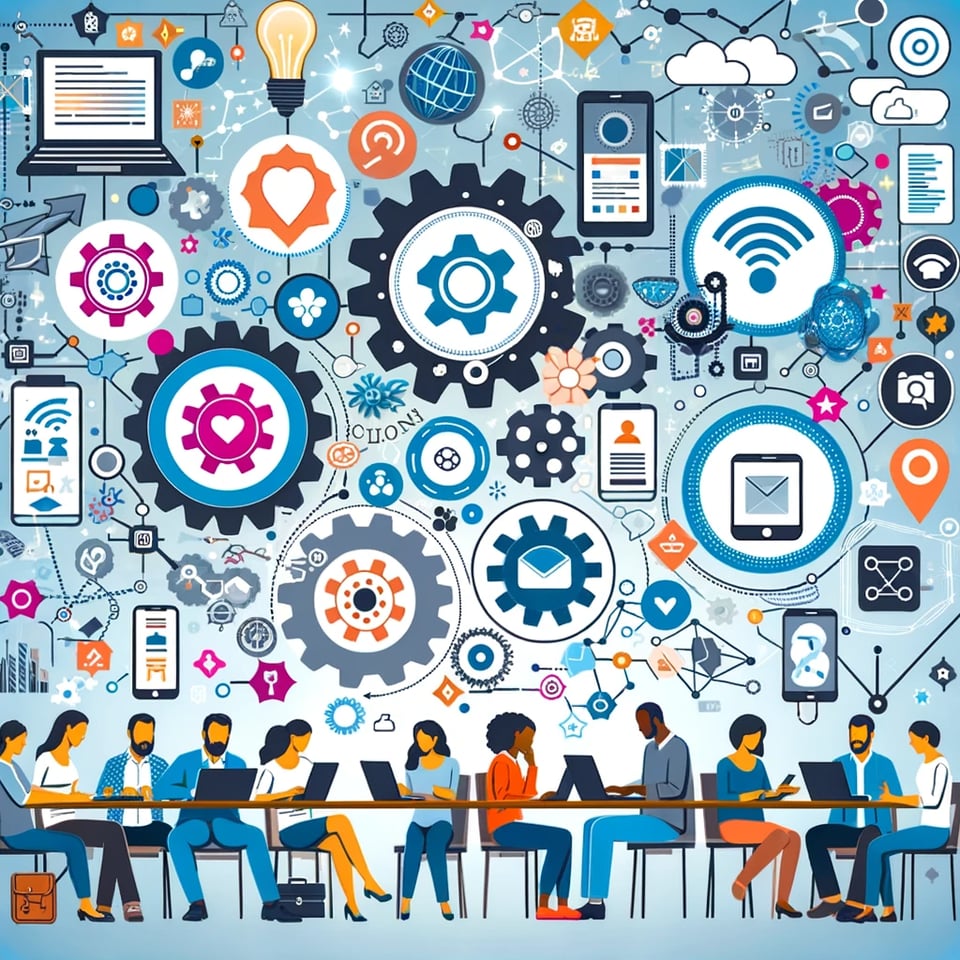What is Sociotechnical and who is writing it?
What does it mean to be sociotechnical?
When something is described as “social,” it suggests an interaction between multiple people. When something is described as “technical,” it suggests a detailed and specialized world, often in engineering or science.
What happens if you combine these two concepts?
If you were to form “technosocial,” it would suggest the impact of technology on society, such as how smartphones have changed our communication habits and social interactions. If, instead, you were to form “sociotechnical,” it would emphasize the interdependent relationship between social systems and technical systems. It suggests how technology and society can co-evolve and influence each other mutually. An example might be the development of public transportation systems, where societal needs and technological capabilities have evolved together.
There is much, much more to say about all this, but before I start, let me first explain a bit more about who I am and why I’m writing Sociotechnical.

Who am I?
My name is Marsh Gardiner, and I’ve spent decades of my professional life working on the product side of technology, from videogames like John Madden Football at Electronic Arts to enterprise software at Google Cloud. Most recently, I served 14 years as product manager for Apigee’s API management platform, from a small startup through our IPO and eventual acquisition and integration into Google Cloud.
As long as I can remember, I’ve been interested in how technology can improve the lives of individuals and groups. Socializing and humanizing technology is my jam.
Why write?
Writing helps me to organize my thoughts and to refine my ideas. By publishing these posts, I am articulating important aspects of my own mental models so they can be shared and improved. It has been my experience that feedback from others leads to better mental models and better shared understanding, which leads to engineering better worlds.
To that end, whenever you feel strongly about anything that I have written, whether negatively or positively, I want to hear about it! Reach me privately via email or publicly on Mastodon/Threads/Bluesky/LinkedIn (and even X/Twitter if you must).
What is sociotechnical (continued)?
The study of how people interact with digital machines is known as “Human Computer Interaction (HCI),” and it can be illuminating to consider how HCI improvements accumulate over time. For example, keeping track of physical activity, such as the number of steps taken in a specific time period. The first pedometers were mechanical. As technology advanced, they became electronic. They then evolved to connect with other systems, which meant that data collection could be automated, reducing the toil of having to transcribe measurements in order to process them.
Over time, technology begins to disappear as improvements compound over time so that devices conform to their users.
So if HCI is about the 1-to-1 interactions between humans and the computers they use, then a sociotechnical system is about the 1-to-many and the many-to-1 interactions between people, facilitated by such technologies as they co-evolve. In that way, sociotechnical is like multiplayer HCI.
A sociotechnical system is a concept that recognizes the intricate and interdependent relationship between social systems (people, cultures, organizations) and technical systems (machines, technology, processes). It's based on the idea that neither the social nor the technical system can be understood or optimized in isolation; they are deeply intertwined and influence each other.
What can you expect to read here on Sociotechnical?
My writings will apply a sociotechnical lens to three specific areas where it may yield insight:
Network-based APIs beyond their technical nature
Platform engineering and the construction of internal development platforms
AI and the potential in Large Language Models (LLMs) to empower more people to participate in technical systems
I hope you find these topics as interesting as I do, and that you'll join me on this journey.
Did you enjoy this? If so, then you should subscribe to be sure you don't miss the next one (it is both free and low-traffic).
